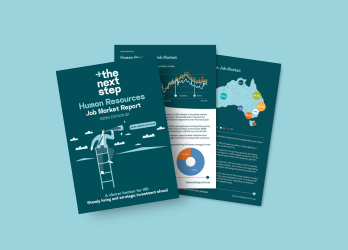Breaking Boardroom Barriers
Page Published Date:
This challenge was a theme at our recent HR & Safety: Speaking to the Board event in Sydney, where senior leaders explored how to influence better governance through their professional practice. The discussions revealed a stark reality: many boards remain stuck in outdated reporting patterns that limit their strategic effectiveness. Translating complex organisational intelligence into boardroom language isn't just about better reporting, it's about building the strategic influence every leader needs to drive real change.

The information gap crisis
Boards across Australia are making critical decisions with insufficient information. As Harriet Eager from MinterEllison observed during our panel discussion, "The main issue is lack of information. Boards have officer due diligence obligations and need adequate information to fulfill these duties."
This creates an unprecedented opportunity for senior leaders. Those who master the art of translating functional expertise into strategic business language will find themselves at the heart of organisational decision-making. The challenge isn't proving your function matters - it's proving you understand the business well enough to be trusted with its future. Your technical expertise is your foundation, but your strategic communication skills will determine your influence.
Quality trumps quantity every time
Directors are drowning in data but starving for insight. Gitanjali Bhalla, Board Director at Boral, highlighted this critical gap: "The main challenge is receiving data without insight. We need trend analysis and forward-looking indicators about what's coming next that needs to be managed."
Transform your board reporting by focusing on trends and forward-looking indicators rather than backward-looking statistics. Ask yourself: what story does this data tell about our organisational capability? Where might we face challenges in the next 12-18 months?
Your action plan: Replace raw data with contextualised intelligence that connects functional performance to business outcomes. Show directors how your metrics predict broader organisational health and performance.
Financial integration reveals everything
Smart leaders recognise that financial data and forecasts reveal where organisational capability will be tested before functional failures occur. Wade Needham from Natural Resources made this connection clear: "When businesses are struggling, financial data and outlooks inform us where business units will face stress, where teams are under pressure. You can see deviations in financial data that will lag into stress testing capability."
This integration allows you to identify stress points before they become operational failures. When businesses face financial pressure, you can predict where resources will be stretched, and standards might slip.
Your action plan: Partner with your finance team to understand budget forecasts and operational pressures. Use this intelligence to predict where risks will emerge and present proactive mitigation strategies to your board.
Culture beats compliance every time
While compliance metrics reassure directors about regulatory obligations, cultural indicators predict future performance. Amanda Hughes from QBE Insurance emphasised this point: "Boards want to understand culture and behaviour because these can destroy companies. We see headlines constantly about cultural and behavioural issues bringing down organisations."
Focus your reporting on cultural health indicators: How quickly does bad news travel up the organisation? Do people feel safe raising concerns? Are critical processes being maintained consistently across all business units?
Your action plan: Develop cultural pulse checks that go beyond standard engagement surveys. Create targeted assessments that give board’s confidence in your organisational foundation and capability to execute strategy.
Master the business language
The most technically competent leader loses influence the moment they resort to functional jargon in the boardroom. As Wade Needham advised: "Situate your expertise in language boards understand-typically operations or finance vernacular. This builds rapport and helps you get the resources and approvals you need."
Frame initiatives in terms of business outcomes. Instead of "improving our management system," talk about "building organisational resilience that protects our operational capacity and reputation." Replace technical terminology with clear business impact statements.
Your action plan: Practice translating your key messages into business language. Test your board papers with colleagues from other functions before presenting to ensure clarity and relevance.
Context drives decisions
Numbers without context are meaningless to busy directors. Amanda Hughes reinforced this critical principle: "Always provide context, explain why boards are getting information and what actions are expected. This makes it much easier for boards to engage appropriately and make informed decisions."
Provide the narrative that helps directors understand not just what happened, but why it matters and what they should do about it. High performance scores mean nothing if you don't explain what drives performance in your specific context.
Your action plan: Build context into every data point. Include industry benchmarks, trend analysis and clear recommendations for board action in all your reporting.
The AI and supply chain revolution
Today's boards face unprecedented challenges from technological disruption and global supply chain pressures. Leaders who help directors navigate these complexities will become indispensable strategic advisors.
For HR professionals specifically, this means understanding how AI disrupts traditional recruitment models, how remote work pressures challenge employee engagement frameworks, and how evolving workplace legislation impacts talent strategies. These aren't just people management challenges-they're strategic business risks that require board-level attention.
Your action plan: Stay ahead of macro trends affecting your industry. Present not just current performance, but how emerging challenges will impact your organisation's capability to execute its strategy.
How we can help
Building board influence requires more than functional expertise-it demands strategic thinking and business acumen. The Next Step understands that effective leadership today means translating complex organisational intelligence into strategic insights that drive business decisions.
Our sister brand The Safe Step, offer comprehensive solutions for developing influential leaders. Whether you're seeking to build internal capability through strategic advisory services or develop future leaders through targeted workshops like Amplify: Future Leader Workshop, together we recognise that tomorrow's most influential leaders will be those who master the art of strategic communication today.



